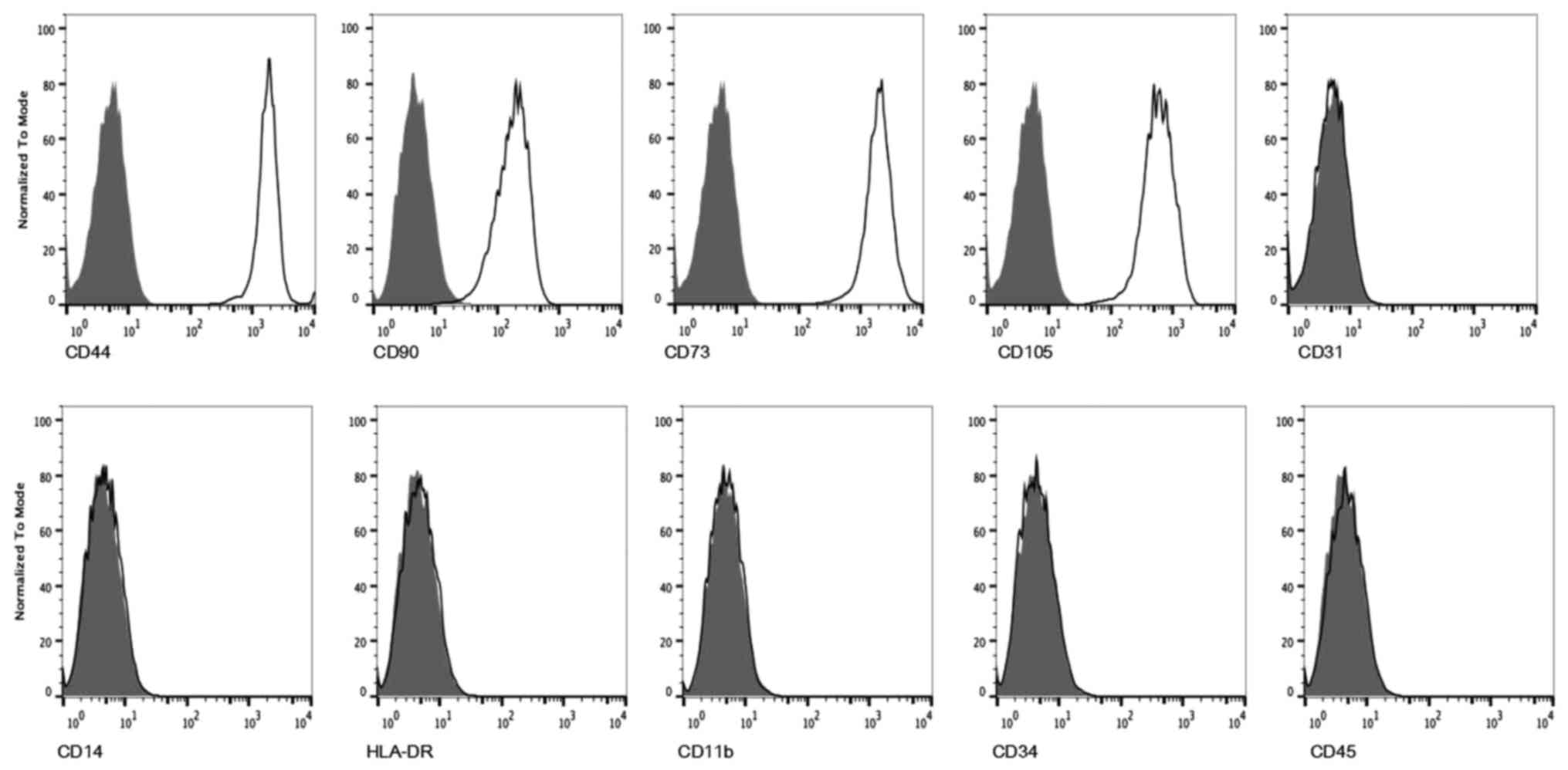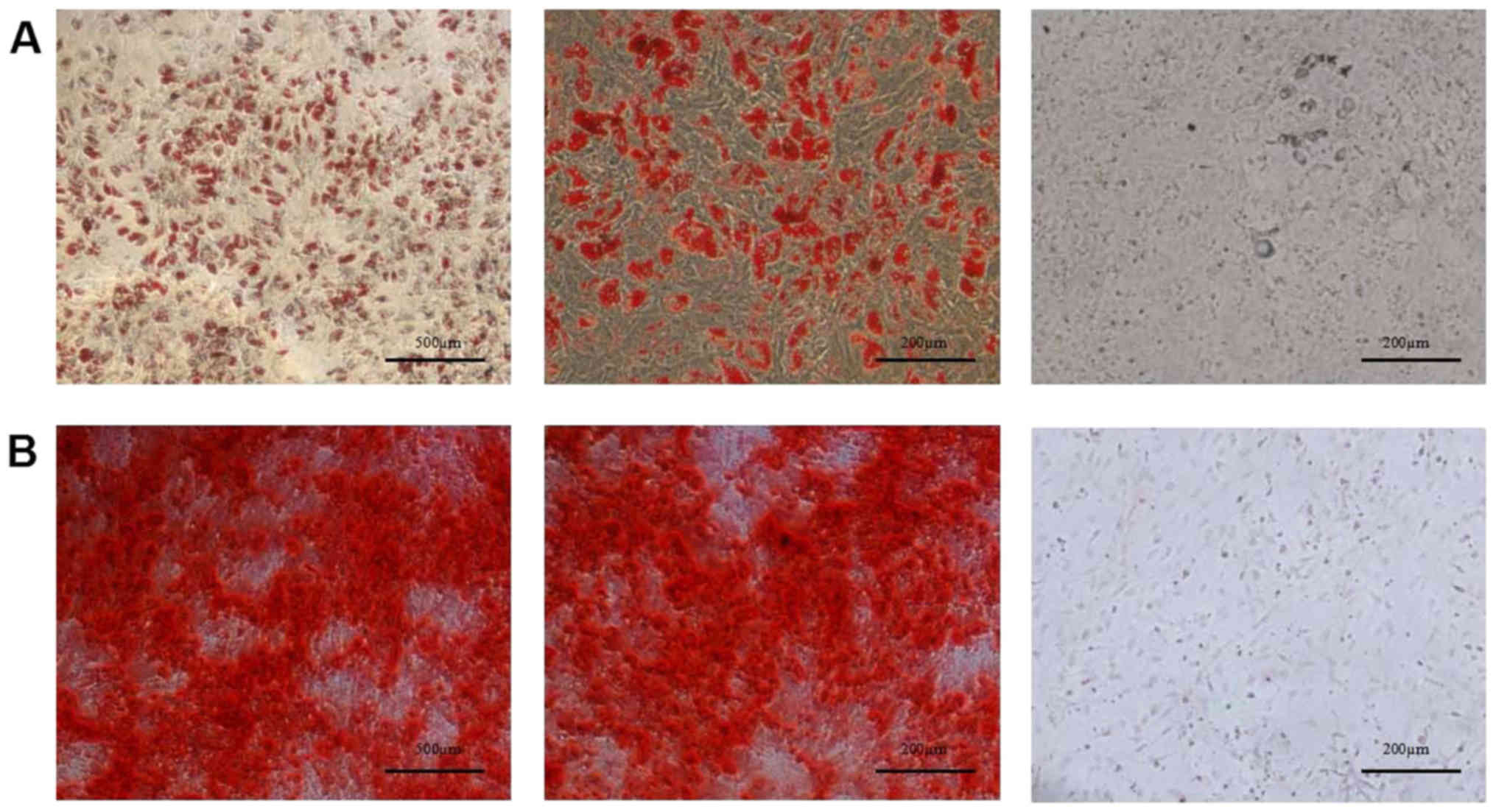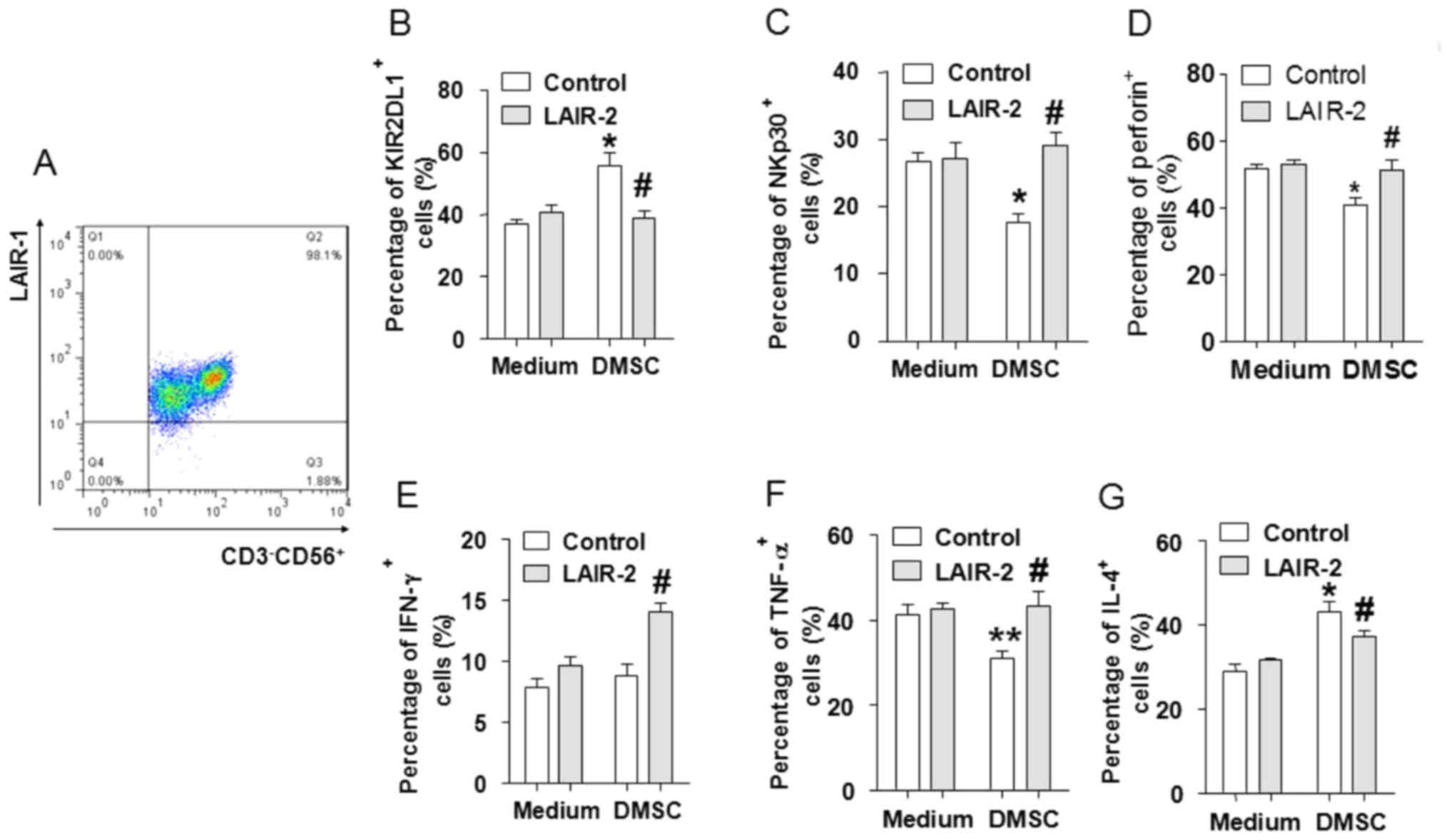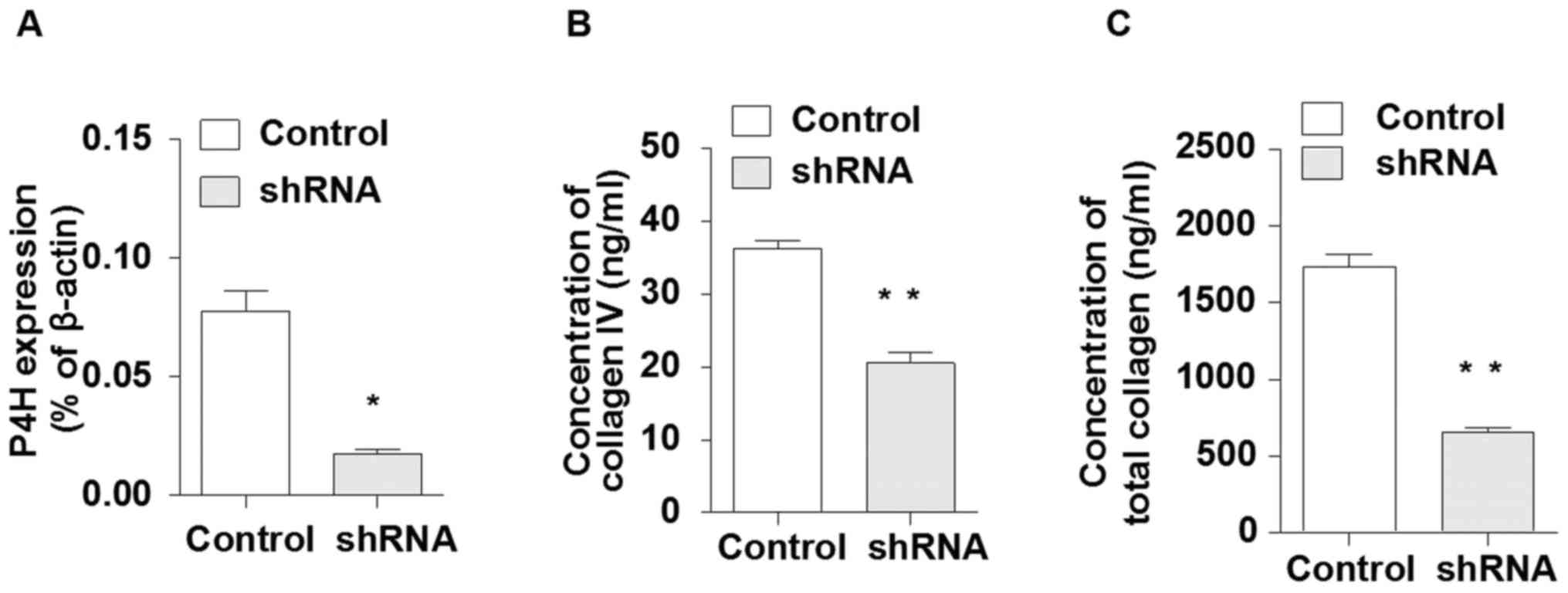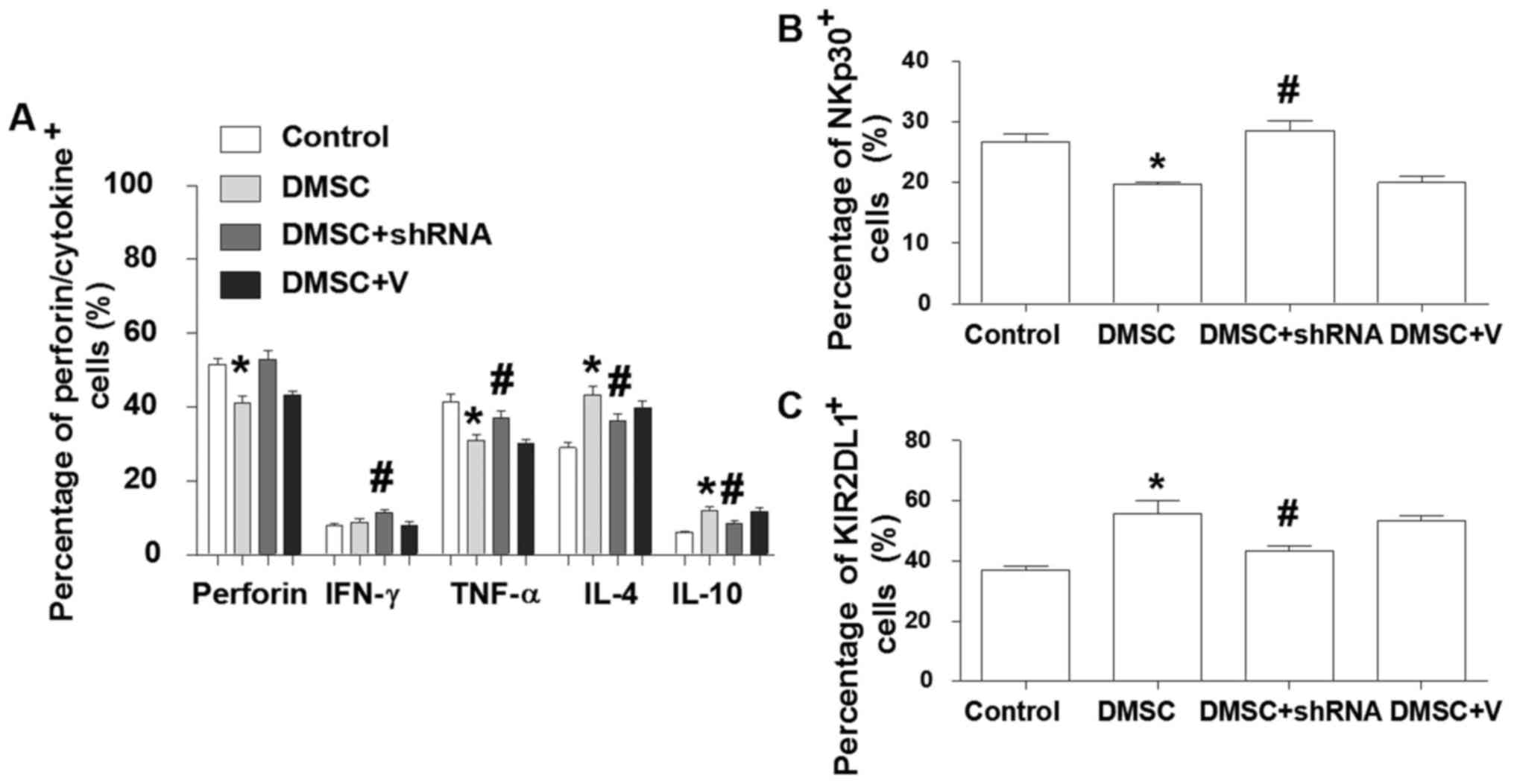|
1
|
Reyes M, Lund T, Lenvik T, Aguiar D,
Koodie L and Verfaillie CM: Purification and ex vivo expansion of
postnatal human marrow mesodermal progenitor cells. Blood.
98:2615–2625. 2001. View Article : Google Scholar : PubMed/NCBI
|
|
2
|
Zvaifler NJ, Marinova-Mutafchieva L, Adams
G, Edwards CJ, Moss J, Burger JA and Maini RN: Mesenchymal
precursor cells in the blood of normal individuals. Arthritis Res.
2:477–488. 2000. View
Article : Google Scholar : PubMed/NCBI
|
|
3
|
Zuk PA, Zhu M, Ashjian P, De Ugarte DA,
Huang JI, Mizuno H, Alfonso ZC, Fraser JK, Benhaim P and Hedrick
MH: Human adipose tissue is a source of multipotent stem cells. Mol
Biol Cell. 13:4279–4295. 2002. View Article : Google Scholar : PubMed/NCBI
|
|
4
|
Schwab KE and Gargett CE: Co-expression of
two perivascular cell markers isolates mesenchymal stem-like cells
from human endometrium. Hum Reprod. 22:2903–2911. 2007. View Article : Google Scholar : PubMed/NCBI
|
|
5
|
Ma S, Xie N, Li W, Yuan B, Shi Y and Wang
Y: Immunobiology of mesenchymal stem cells. Cell Death Differ.
21:216–225. 2014. View Article : Google Scholar : PubMed/NCBI
|
|
6
|
Kammerer U, von Wolff M and Markert UR:
Immunology of human endometrium. Immunobiology. 209:569–574. 2004.
View Article : Google Scholar : PubMed/NCBI
|
|
7
|
Poehlmann TG, Schaumann A, Busch S,
Fitzgerald JS, Aguerre-Girr M, Le Bouteiller P, Schleussner E and
Markert UR: Inhibition of term decidual NK cell cytotoxicity by
soluble HLA-G1. Am J Reprod Immunol. 56:275–285. 2006. View Article : Google Scholar : PubMed/NCBI
|
|
8
|
Dimitrov R, Kyurkchiev D, Timeva T,
Yunakova M, Stamenova M, Shterev A and Kyurkchiev S:
First-trimester human decidua contains a population of mesenchymal
stem cells. Fertil Steril. 93:210–219. 2010. View Article : Google Scholar : PubMed/NCBI
|
|
9
|
Guo C, Zhu H, Huang W, Li S, Qu W, Liu Y
and Tan A: Side population cells in the human decidua of early
pregnancy exhibit stem/progenitor cell-like characteristics. Reprod
Biomed Online. 21:783–793. 2010. View Article : Google Scholar : PubMed/NCBI
|
|
10
|
Nakashima A, Shima T, Inada K, Ito M and
Saito S: The balance of the immune system between T cells and NK
cells in miscarriage. Am J Reprod Immunol. 67:304–310. 2012.
View Article : Google Scholar : PubMed/NCBI
|
|
11
|
Zhu XY, Zhou YH, Wang MY, Jin LP, Yuan MM
and Li DJ: Blockade of CD86 signaling facilitates a Th2 bias at the
maternal-fetal interface and expands peripheral CD4+
CD25+ regulatory T cells to rescue abortion-prone
fetuses. Biol Reprod. 72:338–345. 2005. View Article : Google Scholar : PubMed/NCBI
|
|
12
|
Spaggiari GM and Moretta L: Cellular and
molecular interactions of mesenchymal stem cells in innate
immunity. Immunol Cell Biol. 91:27–31. 2013. View Article : Google Scholar : PubMed/NCBI
|
|
13
|
Piao HL, Tao Y, Zhu R, Wang SC, Tang CL,
Fu Q, Du MR and Li DJ: The CXCL12/CXCR4 axis is involved in the
maintenance of Th2 bias at the maternal/fetal interface in early
human pregnancy. Cell Mol Immunol. 9:423–430. 2012. View Article : Google Scholar : PubMed/NCBI
|
|
14
|
Fu Q, Tao Y, Piao H, Du MR and Li DJ:
Trophoblasts and decidual stromal cells regulate decidual NK cell
functions via interaction between collagen and LAIR-1. Am J Reprod
Immunol. 71:368–378. 2014. View Article : Google Scholar : PubMed/NCBI
|
|
15
|
Qi HH, Ongusaha PP, Myllyharju J, Cheng D,
Pakkanen O and Shi Y, Lee SW, Peng J and Shi Y: Prolyl
4-hydroxylation regulates Argonaute 2 stability. Nature.
455:421–424. 2008. View Article : Google Scholar : PubMed/NCBI
|
|
16
|
Livak KJ and Schmittgen TD: Analysis of
relative gene expression data using real-time quantitative PCR and
the 2(−Delta Delta C(T)) method. Methods. 25:402–408. 2001.
View Article : Google Scholar : PubMed/NCBI
|
|
17
|
Bae YJ, Kwon YR, Kim HJ, Lee S and Kim YJ:
Enhanced differentiation of mesenchymal stromal cells by
three-dimensional culture and azacitidine. Blood Res. 52:18–24.
2017. View Article : Google Scholar : PubMed/NCBI
|
|
18
|
Pradier A, Passweg J, Villard J and
Kindler V: Human bone marrow stromal cells and skin fibroblasts
inhibit natural killer cell proliferation and cytotoxic activity.
Cell Transplant. 20:681–691. 2011. View Article : Google Scholar : PubMed/NCBI
|
|
19
|
Iwahashi M, Muragaki Y, Ooshima A and
Nakano R: Decreased type IV collagen expression by human decidual
tissues in spontaneous abortion. J Clin Endocrinol Metab.
81:2925–2929. 1996. View Article : Google Scholar : PubMed/NCBI
|
|
20
|
Burrows TD, King A and Loke YW: The role
of integrins in adhesion of decidual NK cells to extracellular
matrix and decidual stromal cells. Cell Immunol. 166:53–61. 1995.
View Article : Google Scholar : PubMed/NCBI
|
|
21
|
Rygiel TP, Stolte EH, de Ruiter T, van de
Weijer ML and Meyaard L: Tumor-expressed collagens can modulate
immune cell function through the inhibitory collagen receptor
LAIR-1. Mol Immunol. 49:402–406. 2011. View Article : Google Scholar : PubMed/NCBI
|
|
22
|
Meyaard L, Adema GJ, Chang C, Woollatt E,
Sutherland GR, Lanier LL and Phillips JH: LAIR-1, a novel
inhibitory receptor expressed on human mononuclear leukocytes.
Immunity. 7:283–290. 1997. View Article : Google Scholar : PubMed/NCBI
|
|
23
|
Lebbink RJ, van den Berg MC, de Ruiter T,
Raynal N, van Roon JA, Lenting PJ, Jin B and Meyaard L: The soluble
leukocyte-associated Ig-like receptor (LAIR)-2 antagonizes the
collagen/LAIR-1 inhibitory immune interaction. J Immunol.
180:1662–1669. 2008. View Article : Google Scholar : PubMed/NCBI
|
|
24
|
Lenting PJ, Westerlaken GH, Denis CV,
Akkerman JW and Meyaard L: Efficient inhibition of collagen-induced
platelet activation and adhesion by LAIR-2, a soluble Ig-like
receptor family member. PLoS One. 5:e121742010. View Article : Google Scholar : PubMed/NCBI
|
|
25
|
Lebbink RJ, Raynal N, de Ruiter T, Bihan
DG, Farndale RW and Meyaard L: Identification of multiple potent
binding sites for human leukocyte associated Ig-like receptor LAIR
on collagens II and III. Matrix Biol. 28:202–210. 2009. View Article : Google Scholar : PubMed/NCBI
|
|
26
|
Doncarli A, Stasiuk LM, Fournier C and
Abehsira-Amar O: Conversion in vivo from an early dominant Th0/Th1
response to a Th2 phenotype during the development of
collagen-induced arthritis. Eur J Immunol. 27:1451–1458. 1997.
View Article : Google Scholar : PubMed/NCBI
|
|
27
|
Kusnierczyk P: Killer cell
immunoglobulin-like receptor gene associations with autoimmune and
allergic diseases, recurrent spontaneous abortion, and neoplasms.
Front Immunol. 4:82013. View Article : Google Scholar : PubMed/NCBI
|
|
28
|
Flores AC, Marcos CY, Paladino N, Arruvito
L, Williams F, Middleton D and Fainboim L: KIR receptors and HLA-C
in the maintenance of pregnancy. Tissue Antigens. 69:(Suppl 1).
S112–S113. 2007. View Article : Google Scholar
|
|
29
|
Fukui A, Ntrivalas E, Fukuhara R, Fujii S,
Mizunuma H, Gilman-Sachs A, Beaman K and Kwak-Kim J: Correlation
between natural cytotoxicity receptors and intracellular cytokine
expression of peripheral blood NK cells in women with recurrent
pregnancy losses and implantation failures. Am J Reprod Immunol.
62:371–380. 2009. View Article : Google Scholar : PubMed/NCBI
|
|
30
|
Marlin R, Duriez M, Berkane N, de Truchis
C, Madec Y, Rey-Cuille MA, Cummings JS, Cannou C, Quillay H,
Barré-Sinoussi F, et al: Dynamic shift from CD85j/ILT-2 to NKG2D NK
receptor expression pattern on human decidual NK during the first
trimester of pregnancy. PLoS One. 7:e300172012. View Article : Google Scholar : PubMed/NCBI
|
|
31
|
El Costa H, Casemayou A, Aguerre-Girr M,
Rabot M, Berrebi A, Parant O, Clouet-Delannoy M, Lombardelli L,
Jabrane-Ferrat N, Rukavina D, et al: Critical and differential
roles of NKp46-and NKp30-activating receptors expressed by uterine
NK cells in early pregnancy. J Immunol. 181:3009–3017. 2008.
View Article : Google Scholar : PubMed/NCBI
|
















